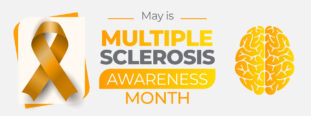Does coffee lower the risk of MS?
A new study reports that drinking a lot of coffee – seven or more cups a day – may reduce the risk of developing multiple sclerosis by about 30% (Hedstrom and colleagues. J Neurol Neurosurg Psychiatry 2016; epublished March 3, 2016).
The study used information from two large population databases in Sweden and the U.S. The analyses included 4,408 Swedes and 2,331 Americans. Participants were asked how many cups of coffee they drank in their teens, twenties, thirties, and forties.
For the Swedish group, the risk of developing MS was 30% lower among those who drank seven or more cups of coffee a day compared to those who drank no coffee (a cup of coffee in Sweden is 150 mL, or 5 fluid ounces). There was little effect with 1-2 cups a day, but an increasing effect as more coffee was consumed. Similar results were seen in the U.S. after four or more cups of coffee. The difference was due to the size of the cup – a cup of coffee in the U.S. averaged 237 mL, or 8 fluid ounces. So in both groups, a coffee effect was seen in people consuming over 900 mL of coffee per day (about 32 fluid ounces).
It’s important to note that the study looked at the risk of developing MS, so it doesn’t mean that drinking coffee after you have been diagnosed will help your MS. And it should also be noted that this type of study is only as good as the data collected. For example, participants in the study were as old as 70 years of age, and it’s likely that people asked to remember how much coffee they drank when they were 18 years old (i.e. 30, 40 or 50 years before) may not have been entirely accurate. And the results were statistically valid only when the results were adjusted for a number of other factors. To illustrate these uncertainties with the data, the risk of developing MS was even lower – 35% – among those who had a cigarette with their coffee.
A number of previous studies have examined the MS-coffee connection and have reported different findings. An analysis of data from the Nurses’ Health Study, which collected information on over 90,000 women over 25 years, found that drinking coffee (with or without caffeine) had no bearing on the risk of developing MS (Massa and colleagues. Mult Scler 2013;19:53-58). (Consuming beer, wine or liquor also had no effect.) In addition, two studies reported that the risk of MS was actually higher among coffee drinkers, especially if they started in early adolescence (Tola and colleagues. Acta Neurol 1994;16:189-197; Pekmezovic and colleagues. Neuroepidemiology 2006;27:212-116).
On the other side of the coin, a study in Belgium found that some lifestyle factors may influence disability. Among people with relapsing-remitting MS, those who regularly consumed coffee, fish, wine and alcohol took longer to reach EDSS 6 (requiring a cane) (D’hooghe and colleagues. Eur J Neurol 2012;19:616-624).
There is a reason why coffee consumption is a topic of interest to researchers. A few studies have suggested that coffee may protect nerve fibres in the brain. Caffeine is known to interact with adenosine receptors, which is why it promotes wakefulness and alertness. But this interaction with adenosine receptors has also been shown to have effects that may be beneficial in MS. In animal models of MS, caffeine reduces inflammation and demyelination in the brain, and protects against the development of MS (Wang and colleagues. Neuropharmacology 2014;86:203-211; Chen & Chern. Handb Exp Pharmacol 2011;200:267-310; Tsutsui and colleagues. J Neurosci 2004;24:1521-1529). While these results are very preliminary, they provide an intriguing rationale for consuming more caffeine, and prompting some to recommend coffee as one strategy for better brain health.
Share this article
Facebook Twitter pin it! Email
Related Posts
Back





